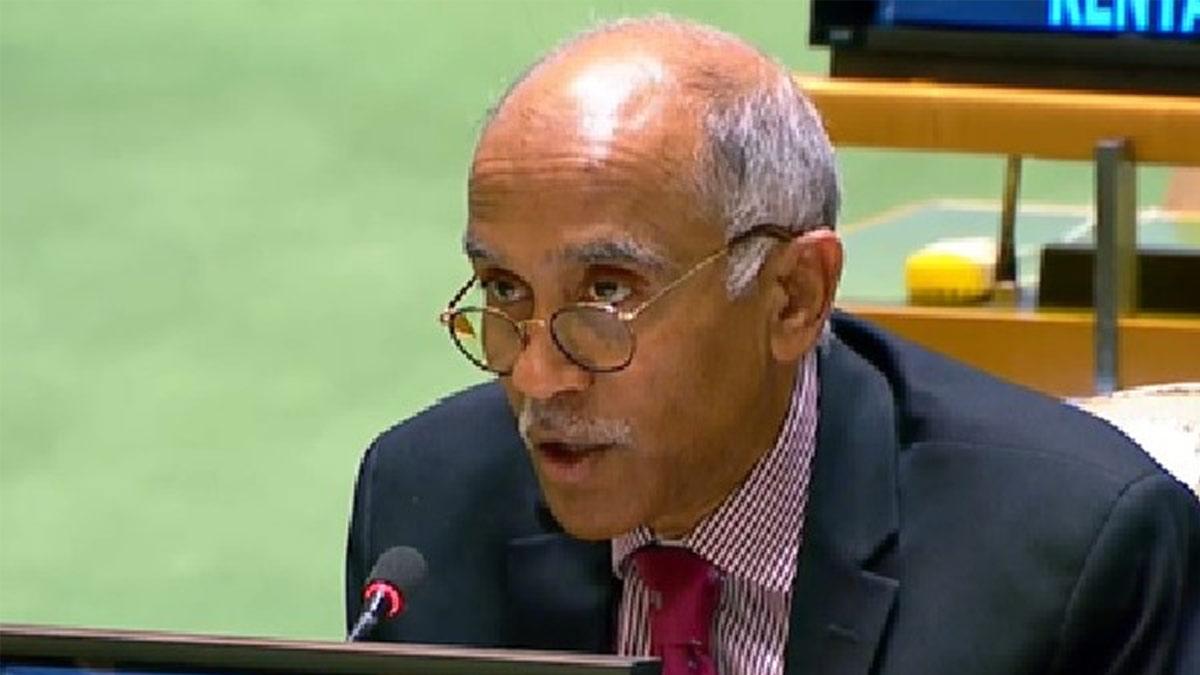In the face of increasing debates on religious representation in the United Nations Security Council, India and its G4 allies—Brazil, Germany, and Japan—have strongly rejected calls to allocate seats on the basis of religious identity.
On behalf of the G4 in a meeting of the Intergovernmental Negotiations (IGN) on reform of the Council, India's Permanent Representative P. Harish stressed that adding criteria like religious background "runs counter to established UN practice."
He stressed that such suggestions would overcomplicate already problematic debate. While Harish did not specifically mention countries, his statement came as a response to Turkish President Recep Tayyip Erdogan's recent insistence that an Islamic country should occupy a permanent position on the Council.
Erdogan had stated, "Having an Islamic state with veto power at the UN Security Council is not only a need but a duty." Also, Pakistan and the Organisation of Islamic Cooperation (OIC) have been backing a comparable stance, calling for representation for the "Islamic Ummah" in all membership categories.
Emphasizing India's autonomous approach during his address to the nation, Harish indicated that applying religion as the basis for representation would go against the very fundamental of regional representation that has been the basis of the UN system's structure all these years. "Efforts at bringing in new parameters like religion and faith as basis of representation in a reformed Council is totally against regional representation," he stated. The G4, usually regarded as a pro-reform bloc leading the way, favors increasing the permanent as well as non-permanent members of the Council. Under their vision, the membership total would rise from 15 to 25 or 26. This consists of raising five permanent members and ten non-permanent members to 11 and 14 or 15.
The G4 sees two new permanent seats for Africa and the Asia-Pacific and one for Latin America & the Caribbean, and Western Europe & Others. For the non-permanent seats, the proposal involves one for Asia-Pacific, Latin America & the Caribbean, and Eastern Europe—with Africa getting one or two seats, depending on the eventual size. Harish explained that the G4 does not support particular countries as permanent members. G4 would again state that a choice regarding member states that would become permanent members in a reformed Council is a choice to be made by the General Assembly democratically," he stated. Swiping at the United for Consensus (UfC) coalition—headed by Italy and joined by Pakistan—that is against new permanent members and stymies the push towards a formal negotiating text, Harish stated: "Those who are against text-based negotiations do not want progress on reforms." He further stated that arguments that a larger Council would be inefficient are just ploys to scuttle meaningful changes. Harish maintained that with appropriate reforms and accountability measures, an expanded Security Council could remain efficient and become more representative of global realities. While Erdogan continues to campaign for Islamic representation in the Council, Pakistan maintains its opposition to adding new permanent members.
But representing the OIC last year, Pakistan's then-ambassador to the UN Munir Akram announced that the "Islamic Ummah" would not accept any proposal that does not provide it with sufficient representation in all Council categories. A look at the existing permanent membership reveals four Christian-majority countries—the U.S. and U.K. (Protestant), France (Catholic), and Russia (Orthodox)—and one officially Communist country, China. In the past, the position currently occupied by China was originally occupied by Taiwan, in which Buddhism and Taoism are strong. India and the G4 stick to their position of insisting on a more balanced, regionally reflective Security Council—not one based on religion or ideology.
Read also| Melinda Gates Labels Divorce from Bill Gates 'Necessary'; A Look at Both Perspectives
Read also| White House Releases Health Report Declaring 78-Year-Old Trump Fit to Serve as President


















